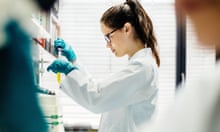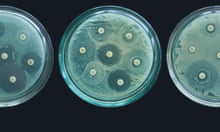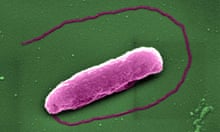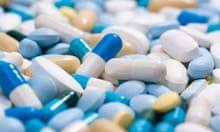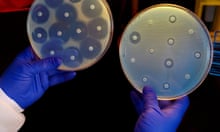Animal health experts and UN leaders have called for a significant reduction in antimicrobial drug usage in food animals, which is already causing a “silent pandemic”.
But critics say the statement is “a real missed opportunity”, pointing to its failure to set reduction targets or even call for a ban on the use of antibiotics for animal growth promotion.
Drugs which are critical for humans are being used in enormous quantities in animal production. As a result there is a far higher probability of drug-resistant bacteria and viruses emerging. This could lead to some of the world’s most important drugs becoming ineffective against common infectious diseases such as pneumonia, tuberculosis and gonorrhoea, with death rates rising.
The joint statement issued this week by the World Organisation for Animal Health (OIE) and the UN’s global leaders group on antimicrobial resistance called for “significant and urgent reduction in the amounts of antimicrobial drugs, including antibiotics, used in food systems” and said this was “critical to combating rising levels of drug resistance”.
The overuse of antimicrobials has led to what G7 leaders called a “silent pandemic” in June. Drug-resistant diseases already cause at least 700,000 human deaths globally every year, according to the statement. “The world is rapidly heading towards a tipping point where the antimicrobials relied on to treat infections in humans, animals and plants will no longer be effective.”
Antimicrobial drugs, which include antibiotics, antifungals and antiparasitics, are used in food production all over the world, the statement said, and are “administered to animals not only for veterinary purposes (to treat and prevent disease), but also to promote growth in healthy animals”.
But despite the statement’s strong wording, experts said it had few teeth.
“Basically what [this call] lacks is a clear target for reduction,” said Thomas Van Boeckel, an antimicrobial resistance, disease, and livestock production systems scientist at the Swiss Federal Institute of Technology.
Although commendable, the statement does not say “quantitatively what they mean by significant”, Van Boeckel said. That meant, “they make no commitment, basically”, he added.
He said the targets must be country specific. “It would be unfair, for example, to impose stringent targets on developing countries who need livestock for their livelihoods.”
But, he said, high-income countries and China could aim for less than 50mg of active antibiotic ingredient per kilogram of meat raised. Many EU countries are using more than that, he said, referencing a 2017 paper he co-authored.
Van Boeckel’s paper found that implementing a global cap of 50mg of antimicrobials, per kilogram of animal product, per year could reduce total consumption by 64%.
The paper said the 50mg cap corresponded to the average global use of antimicrobials in 2017. It further recommended user fees and caps on veterinary use to control antimicrobials.
“This statement is far too cautious and a real missed opportunity,” said Cóilín Nunan, a scientific adviser at the Alliance to Save our Antibiotics. “There is no target [and] not even a call for an immediate end to the use of antibiotics for [livestock] growth promotion.”
Most disappointing, he said, is how little the statement says about intensive farming. “Intensive farming, the root cause of so much animal disease and antibiotic use, is once again let off the hook. Where is the global leadership that is needed if we are ever to move to more sustainable farming practices and drastically cut farm antibiotic use?”
Henk Hobbelink, an agronomist and co-founder of the small-farmer focused NGO Grain, agreed and said the use of antimicrobial growth promoters in factory farming needed “to be banned, immediately and everywhere”.
Another solution that has been suggested is to develop animal-only antibiotics. Timothy Walsh, who is working with a team to develop animal only replacements at the Ineos Oxford Institute (IOI) for antimicrobial research, said it was “bonkers to use the same drugs in animal feeds as you would to treat neonatal sepsis”.
The IOI’s vision, he said, is to “move to a place where in supermarkets across the UK and beyond food will be labelled NHA [meaning] no human antibiotics” but it “will take, time, effort, money, goodwill and global policy”.
Sign up for the Animals farmed monthly update to get a roundup of the best farming and food stories across the world and keep up with our investigations. You can send us your stories and thoughts at animalsfarmed@theguardian.com

